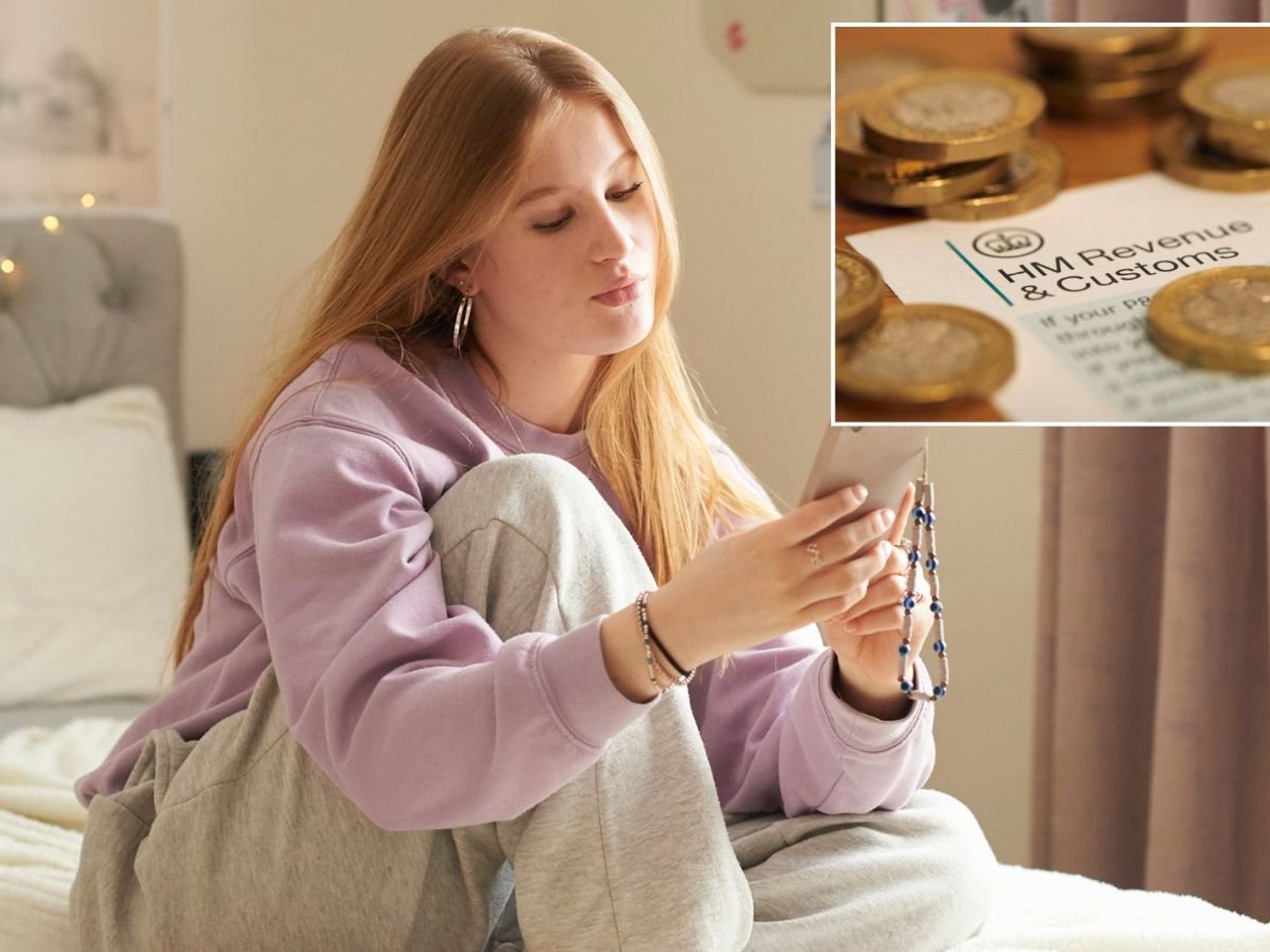How to secure a great summer holiday deal - the day to 'avoid' flying and the payment method you should 'never' use

Britons are counting down the days until summer, and many are excited to jet away to paradises across the globe. As holidaymakers plan their next escapes, travel expert Jane Hawkes shares how to snag the best breaks
Don't Miss
Most Read
Latest
If you haven't planned ahead, you may find yourself racing against the clock to book your 2025 summer holiday.
But rushing and panicking can result in careless mistakes, including falling victim to cyber criminals' often believable scams.
Travel and consumer expert Jane Hawkes spoke exclusively to GB News about how to secure a great last-minute deal without being conned.
She said: "Many of us will be looking to grab a late holiday deal over the coming weeks. But we must be on the lookout for scams, and it is worth remembering that if something looks too good to be true, it probably is.
"In the UK, we have seen a surge in scams, particularly on social media platforms and online marketplaces, with UK residents losing a staggering £11.4 billion to scams in the last 12 months.

Many Britons are planning to pack their bags and jet off this summer
| GETTY IMAGES"Whether it's holiday phishing scams or booking with a provider who is not a regulated travel agency or registered company, it's not worth the risk when you can get great deals through reputable companies.
"There are lots of ways to get a great deal on a getaway, particularly if you are prepared to be flexible and avoid holiday hotspots.
"Most of us want good weather, a clean beach, and somewhere nice to eat in the evening. You don't need to travel to expensive places like Santorini or Capri to get those.
"Never skimp on travel insurance. We don't know what's around the corner. It's simply not worth saving a few pounds by not getting travel insurance when you can shop around for a great deal which will cover you if something happens."
Here, Jane shared her top tips to help consumers secure a great holiday deal.
Watch out for scams: if it's too good to be true, it usually is
There are lots of holiday scams to watch out for. Holiday phishing scams are used to gain control of financial details. Scammers can cleverly mimic emails and correspondence and make them look authentic.
Equally, links to make bookings are very convincing, and AI can generate realistic photos and wording that can catch out the savviest of consumers.
Use a reverse-image search to check the authenticity of images of resorts and accommodation, and identify the source of any images, as scammers can easily create a fake ad to draw you in.
Don't pay by bank transfer
Be wary of websites that don't work properly, have sections missing, or try to force you to make time-pressured decisions.
You should refuse any requests to move communication away from a site such as Airbnb to WhatsApp or other means.
Never action a bank transfer or provide your bank details in response to one of these ads. But always use a credit card. If the offer is legitimate, you will then benefit from the section 75 cover for payments.
Don't agree to PayPal transfers, especially if the transfer is made as ‘PayPal Friends and Family’, as this reduces the protection PayPal can offer.
Book a package holiday
Avoid DIY by booking flights and accommodation separately. Book a package holiday with a trusted travel agent (preferably one you can actually pick up the phone and speak to) for the most consumer protection under the Package and Linked Travel Arrangements 2018.
Online Travel agents may offer the widest range of deals, but they don’t offer the same personalised service, and it can be a lot harder to get in touch when you need to.
Package holidays provide the most financial protection in the event of delays, cancellations, or if your travel company goes bust. If you've booked a package which includes a flight, you will also benefit from ATOL protection. With package holidays, travel companies are responsible for ensuring you get the holiday you have been promised and have paid for.
It's worth taking a look at package holiday deals just to see if they work out cheaper than the cost of a flight on its own. There's no obligation to stay in the hotel or use any associated car hire and transfers if you have alternate plans.
Do your homework before booking
Check the reviews not just of the accommodation but also the travel provider, and check to see if a range of contact details are available, not just online chat. If it's hard to get through to a company to discuss general queries, it could create a lot more stress and hassle if things go wrong and you need to make contact urgently.
I have lots of ways to get through to companies quickly and easily over on the blog, including how to cheat chatbots and get through to a real person: https://ladyjaney.co.uk/category/how-to-contact/.
Be flexible
If you want to save money, flexibility is key in everything, from destination, activities, accommodation and transport to the insurance and booking policies of the providers you choose.
Opting for alternate destinations can be a real money saver. For example, choosing Bulgaria rather than that Instagrammable Greek Island can save you hundreds of pounds. Parts of Croatia are inexpensive but every bit as appealing as the Greek islands or the Balearics.
City breaks also tend to cost less in summer, with beach resorts being the preferred option. Check out annual comparisons of city break costs on the Post Office's City Costs Barometer.
Shop around for travel insurance
You should always take out travel insurance, but shop around as the average cost of cover taken out via a comparison site can be 40 to 50 per cent lower than if bought directly from an insurer.
Some multi-cover policies include travel insurance cover. You can reduce the cost of the policy by increasing the excess, purchasing single-trip insurance or family cover. Ensure you have a valid GHIC (formerly EHIC) card for travel within the EU.
LATEST DEVELOPMENTS

Be wary of websites that ask you to pay for holidays by bank transfer
|GETTY IMAGES
Clear your online cookies
If you've been looking at flights and hotels for a while, clear your browser cookies before booking. This means that websites don’t hike up prices simply because they can see you've visited before and are looking to book. You could also use incognito or private browsing.
Check out all-inclusive offers
If you don't mind eating primarily in the hotel, it's worth looking to see if you can save by going all-inclusive on holiday, factoring in local costs and exchange rates.
All-inclusive deals generally include all meals, snacks and drinks (although not always alcoholic ones) and often airport transfers too. These costs can quickly add up, especially when it's a family trip.
Travel for less with air miles and points
You can collect points and air miles using credit cards, supermarket loyalty schemes, or retail portals to travel for less. Points can be accrued not just through travel but through your everyday shopping too.
You can also sign up for loyalty programmes for your preferred hotels and airlines to benefit from any discounts and offers as a member.
Book timely
Travel companies reduce their rates about eight to 10 weeks before departure, so instead of leaving it until the last minute, aim to book within this window.
However, booking early can mean you get more choice and better prices. The best deals, especially during school holidays, tend to be snapped up quickly.
For flights, the first quarter of the year is often the best time to book, with many companies offering sales in January. Also, avoid flying out on Fridays (the most popular day) and try unusual trip lengths (not seven or 14 days) to find the best value prices.
Jane previously spoke to GB News about the behaviour that could ruin your flight.
For more information and free advice, see: https://ladyjaney.co.uk/.











